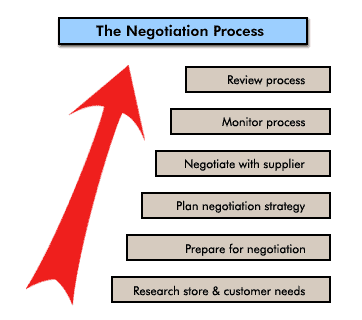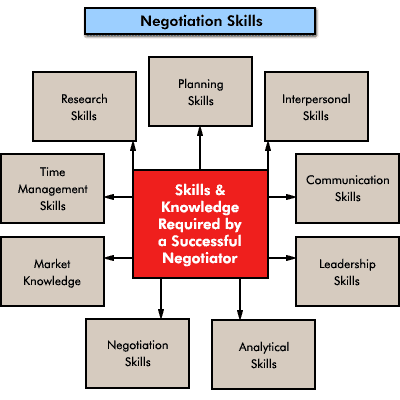
Manage Sales and Service Delivery
Supplier Relationship
The ability to supply products that efficiently satisfy consumer needs and expectations requires a skillful buyer with a high degree of professionalism.
A buyer must have the appropriate knowledge and skills to purchase the goods most suited to their target market at the right price.
Creating on-going partnerships with suppliers and strategies to cover any supply problems that may arise will enhance the profitability of your store. Without goods to sell, a retail business cannot exist.
 |
| A good working relationshop with suppliers is essential to ensuring that the store is able to provide the products that customers want at the time they need them. |
What is Negotiation?
To many people, 'negotiation' means applying all the pressure that it takes to force the other party to accept your terms. Often this involves a win/lose situation to bargain for the cheapest price without regard for the supplier.
In reality, it should be seen as a process that creates a win/win situation where both parties make concessions to reach an acceptable agreement that achieves the best possible result for both. Negotiation is:
- The process where people meet to seek agreement that provides mutual satisfaction on issues of mutual interest and/or concern
- The use of knowledge, time, and power to influence the behaviour of other people so you can achieve your goals.
 |
Negotiation Skills
|
Sound negotiation skills will influence the profitability of your business and your relationship with suppliers. Careful preparation and planning by the buyer is essential if the buyer is to conduct an effective negotiation. The following is a useful checklist when preparing for a negotiation. |
|
|||||||||||||

The Buyer as a Specialist
In most retail organisations buying is a specialised function so it is unlikely that you will be involved in the buying and negotiation process to a large extent. This section is not designed to make you a skilled buyer. It merely provides a background on some of the issues that a professional retail buyer must address everyday. For example:
|
Buyers must have a thorough understanding of the company's policies, procedures and practices. In addition, they must be aware of buying budgets, the level of authority that they have plus, the long and short-term considerations when purchasing. |
|
Using a Suitable Supplier
The buyer must consider the following basic points when choosing a supplier:
|